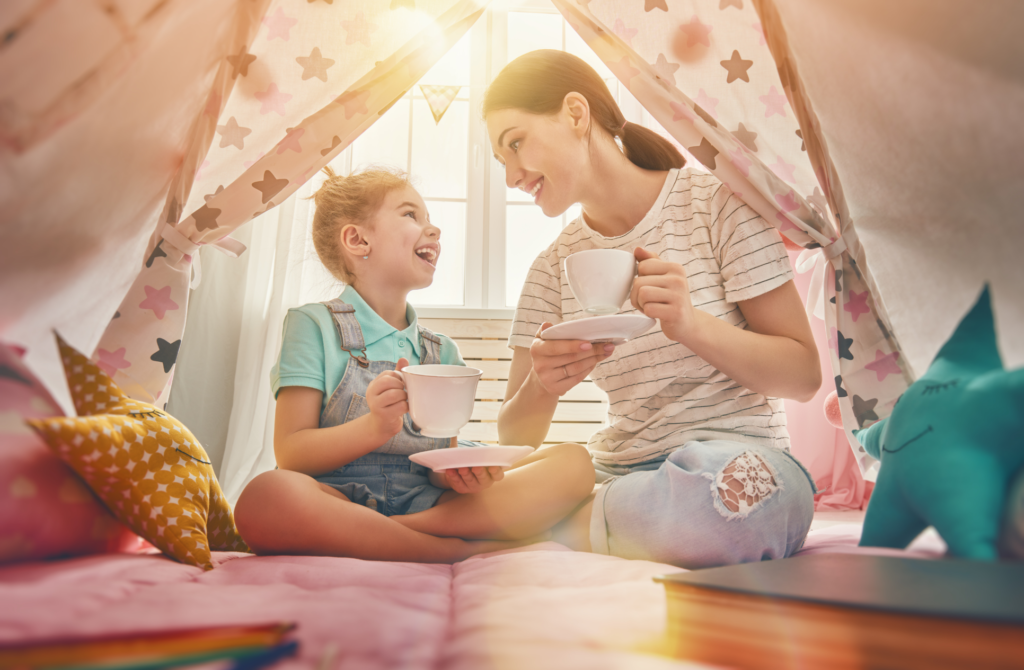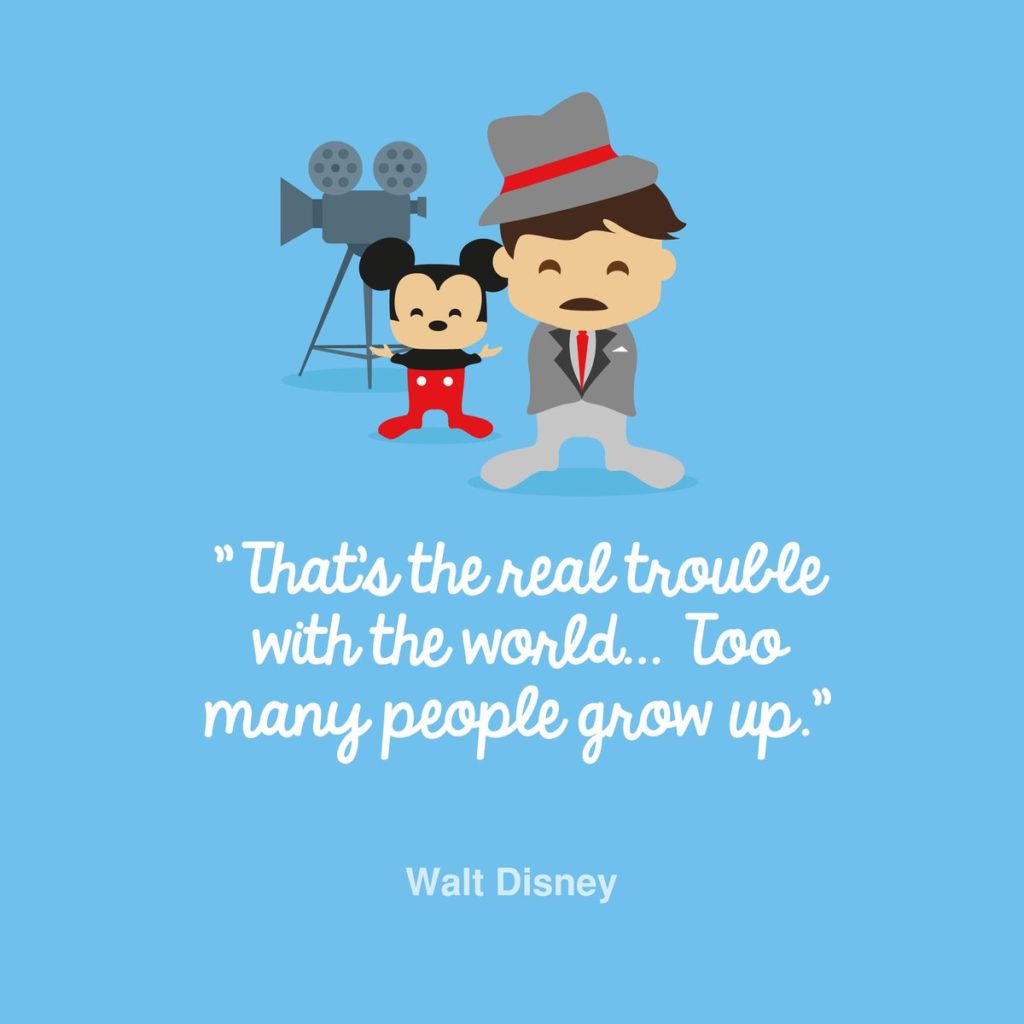
Play is fundamental to our health. A lot of grown-ups who regularly suffer from stress, anxiety, and burnout, were raised to believe that fun is a distraction and the antithesis of a good work ethic and responsible behavior. At best, fun is seen as an occasional treat. We can move away from this thinking by changing our attitude toward fun. Learn about the importance of play and how to make it part of your self-care practice. (Estimated reading time: 6 minutes)
“You don’t stop having fun because you get old, you get old because you stop having fun.”
— Unknown
Let’s face it; the year 2020 has been anything but fun. The global pandemic has cast a dark shadow of fear, uncertainty, and restrictions on us, unlike anything we’ve ever seen.
It seems almost impossible to stay in good spirits, as we witness people struggling to stay healthy (and alive) and trying to pay their bills as economies collapse. Most of the things we do for fun, like traveling, eating out, and attending events and parties have been taken away from us.
Given the current conditions, we now have to be deliberate and creative when it comes to play and enjoyment. This doesn’t mean that we disregard the gravity of the situation, but that we create space for joy and light in our daily routine as part of our self-care practice.
In his book, “The Power of Having Fun: How Meaningful Breaks Help You Get More Done,” author Dave Crenshaw writes that we must find our personal “Oasis” – specific actions and activities that we find energizing and renewing. Scheduling these regular respites through the day, week, month, and year will not only make us happier but a lot more productive.
As a society, we have to re-examine our attitudes toward fun. Many people think that as they get older, they no longer have the permission to be as frivolous and carefree as they once were. In this way, we diminish the importance of play.

A lot of grown-ups who regularly suffer from stress, anxiety, and burnout, were raised to believe that fun is a distraction and the antithesis of a good work ethic and responsible behavior. At best, fun is seen as an occasional treat, like a decadent piece of chocolate.
I’ll admit that I’m not the best at making time for play in my life. I tend to get lost in my projects and must make a conscious effort to schedule time for it. Like many hard-driven creatives, I saw taking time off as a waste. My change of heart came during one of my many visits to Disney World.
On a bus ride from my resort to the parks, I encountered an elderly couple who were beaming as they examined the park map and excitedly planned their day. They stood beside each other, holding hands, wearing Goofy ears and T-shirts that read, “We are never too old for Disney.”
Their youthful demeanor struck a chord with me and made me understand the importance of play. During a particularly stressful time in my life, I saw my encounter with the “Disney couple” as a sign that things had become too much work and too little play. I needed to unplug and have more fun.

I realized that having fun is not just a means to escape reality; it’s fundamental to our health. Feel-good chemicals like dopamine and oxytocin flow into our bloodstream when we’re having a great time and are the natural medicine that keeps our mind, body, and spirit alive.
The absence of it can literally make us sick and weigh down on our spirits. Author Brené Brown says, “the opposite of play is not work—the opposite of play is depression.”
On the surface, play doesn’t seem to have utility value. It’s generally categorized as non-serious activities that bring no visible results or rewards. But many research studies suggest that play is an essential developer of creative ability and are two sides of the same coin.
Many artists and scientists, well-known for their creative talents, were remarkably playful because they understood the importance of play. Einstein would take breaks from his work to play the violin. Wolfgang Amadeus Mozart was notorious for his jokes and high-spirited pranks, which he reflected in his musical composition.

Virginia Woolf and her friends dressed in caftans and turbans to disguise themselves as Abyssinian princes. Their disguises were convincing enough to get themselves onboard a British Navy ship!
If you want to start having more fun in your life, here are some ways that you can increase your playfulness and appreciate the importance of play:
1. Figure out what “fun” means to you: Many grown-ups have forgotten what they enjoy because all their focus is on their responsibilities. There’s also a chance that they’ve outgrown things they liked to do as children and haven’t had the opportunity to identify new ones.
If this is you, sit down and list things you enjoy doing—whether that be salsa dancing or attending a book club. Can’t think of anything? Look for ideas online—Google “fun activities for grown-ups” and pick out the ones that sound interesting. As you consider each option, pay attention to those that make you smile or get you excited.
Another useful exercise is keeping a ‘fun journal’ where you note down your daily activities and give each experience a “fun” score as you complete them. As you go through the exercise, you might realize it’s sometimes the simplest things like giving your dog a belly rub or watering your plants that rank higher than other more grand ones like having dinner at fancy restaurants.
2. Revisit your childhood: Childhood was a time when playtime was compulsory (for most of us) because it’s considered fundamental to a child’s psychological development. Genetic studies show that our preferences for fun are mostly inborn, and our “funprint” remains consistent into adulthood. Childhood is a perfect reference point.
Make a list of things you enjoyed doing as a kid, paying particular attention to activities in which you could lose yourself completely. Additionally, look for patterns in those fun times—were you playing with others or alone? Were you mostly outdoors or indoors? Did it involve objects, words, or other creative elements?
3. Create your own play kit: When I was a kid, I had a small room, affectionately called my “toy room,” where I stored all my toys—stuffed animals, Barbie dolls, glow bugs, trolls, and other trinkets. The adult equivalent of that could be a cabinet or a drawer where you stockpile items for times when you need a break from work or when you just need to have some fun.
What you include in your “toy room” will be based on your responses to the exercise on what you find fun. Some things you can include are coloring books, Play-Doh, LEGO, playing cards, board games, jigsaw puzzles, origami kits, and sticker collections. You could even create a playlist of songs that take you back to your childhood.
4. Prioritize fun in your schedule: As life happens to us, with all its demands and stresses, fun tends to slide to the bottom of our priority list. Prevent this from happening by scheduling time for it. We can look to kids for inspiration—when they know they have playtime scheduled at 2pm, they’ll make sure they make it no matter what. If you take these times away from them, they’ll rebel and have a hard time focusing and being productive in school.
5. Surround yourself with fun people: Emotions are contagious, and you mirror the energy you get from others. If you want to feel more spontaneous, carefree, and laugh more, be around those who embody those qualities. You could also hang out with children who innately know how to have fun. Whether you spend time with kids of your own, a niece or nephew, or while volunteering at a children’s organization, when you become their playmate, they’ll take you with them on their adventures into their imaginary worlds, awakening that part in you.
Charlie Chaplin was someone who took play seriously (and did it for a living). He once said that a day without laughter is a day wasted. In our consumerist society, we get way too hung up in chasing the latest shiny objects that we forget to have a good laugh along the way.
The next time you find yourself caught in the lure of material pleasures, remind yourself that it can never a substitute for having fun—the real kind that makes you come alive!
All my best on your journey,
Seline

Question for you: Are you having enough fun in your life right now? If not, what are some activities that might help you engage in more play and appreciate the importance of play?
Did you like this post? Sign up below, and I’ll send you more awesome posts like this every week

Great post Seline….play is so important. I have had discussions with my family like this many times before. The need for a time to relax, unwind, and play is essential for us to stay sane in this crazy world. Whtever it is, a hobby, just taking a break, we all need time to shut down and relax. Whther for a day a few hours or just a half hour it is important for our mental health. Thank you for calling attention to this important idea and helping to make the idea of having fun as adults something that is more accepted. Be well…Leva.
Thanks for sharing your thoughts Leva! 🙂 Spread the word!